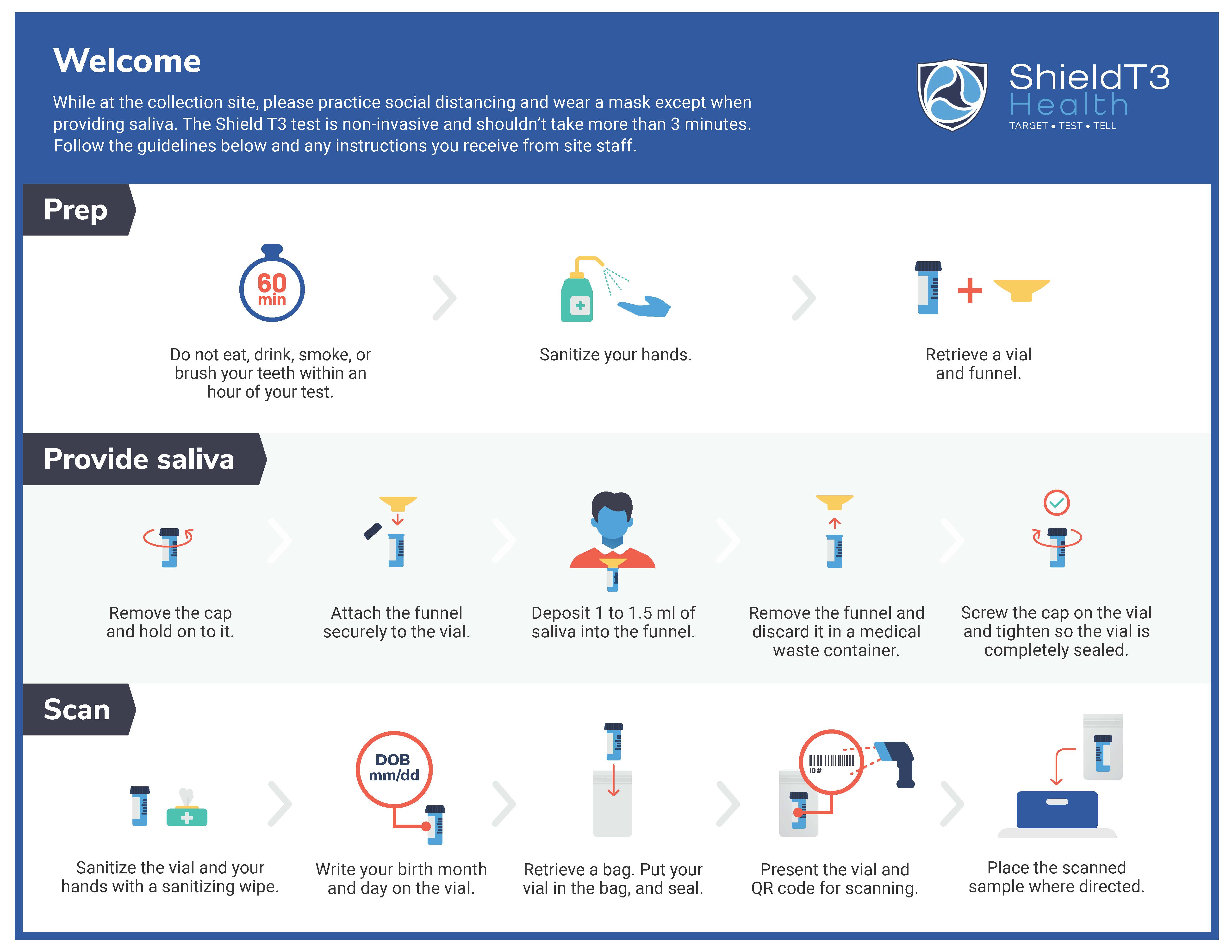Photos courtesy of Jeff Watts/American University
Marymount University has joined other institutions in the Consortium of Universities of the Washington Metropolitan Area in the rollout of an innovative saliva-based COVID-19 testing system with a mobile laboratory at Gallaudet University in Northeast Washington.
Expanded testing is a critical component of reducing the spread of COVID-19 and safeguarding our communities, and the mobile lab offers an accurate, affordable and convenient saliva-based test. Starting as early as March 1, the mobile lab has the capacity to process more than 50,000 COVID-19 tests per week, which will support safe, in-person operations at participating institutions. This collaboration is an innovative approach for universities and community partners to both address their specific needs and serve the broader region.

The partnership showcases new ways that universities support the D.C. community, with American University funding the mobile laboratory and Gallaudet University providing the physical space and utility hook-ups for its operation.
Marymount, American, Catholic and Gallaudet universities plan to use 5,000 of those tests per week initially.
“Expanding Marymount University’s COVID-19 testing to include asymptomatic community members this past fall was key in allowing our institution to continue to remain open for both in-person learning and on-campus living,” explained Dr. Irma Becerra, President of Marymount University. “As we edge closer to more widespread vaccination opportunities later this year, rapid and accurate testing remains crucial to protecting our students, faculty, staff and community partners. We are proud to team up with our fellow consortium members in promoting and utilizing the advanced testing technology.”
Developed in partnership with researchers at the University of Illinois Urbana-Champaign, the Shield T3 test requires only a deposit of saliva instead of an intrusive nasal swab. Trained medical personnel are not needed to administer the test, saving partners considerable money. The test takes minutes to administer and aims to generate results within eight hours of the test being delivered to the mobile laboratory.
Further, this PCR test looks for three genes (N, S and ORF1ab) present in the coronavirus, versus other tests which look for just one, earning it high specificity and very few false positives. It also helps with detection of some of the British variant.
At the end of December 2020, it began showing that in individuals infected with the B117 strain of SARS-CoV-2 (the British variant), the S-Gene was “dropping out” from detection. This three-gene test observes such S-gene dropout, allowing the test to identify individuals that likely have this mutation.

The new lab also enables schools to collect saliva samples at their own sites, eliminating the time-consuming commute to various testing locations by hundreds of employees, staff or students. The samples are then transported to the mobile laboratory at Gallaudet for rapid processing.
“We have worked hard to make testing widely available to the community through the universities we serve, as testing is a critical component in slowing the spread of COVID-19,” said Andrew Flagel, Ph.D., President and CEO of the Consortium of Universities of the Washington Metropolitan Area. “We are pleased to partner with our members to bring this new testing option to D.C., and we ask any schools interested in participating to contact us.”
The resources listed below contain more information on the sample collection process:
Shield T3 COVID-19 Test Collection Site Process Video






